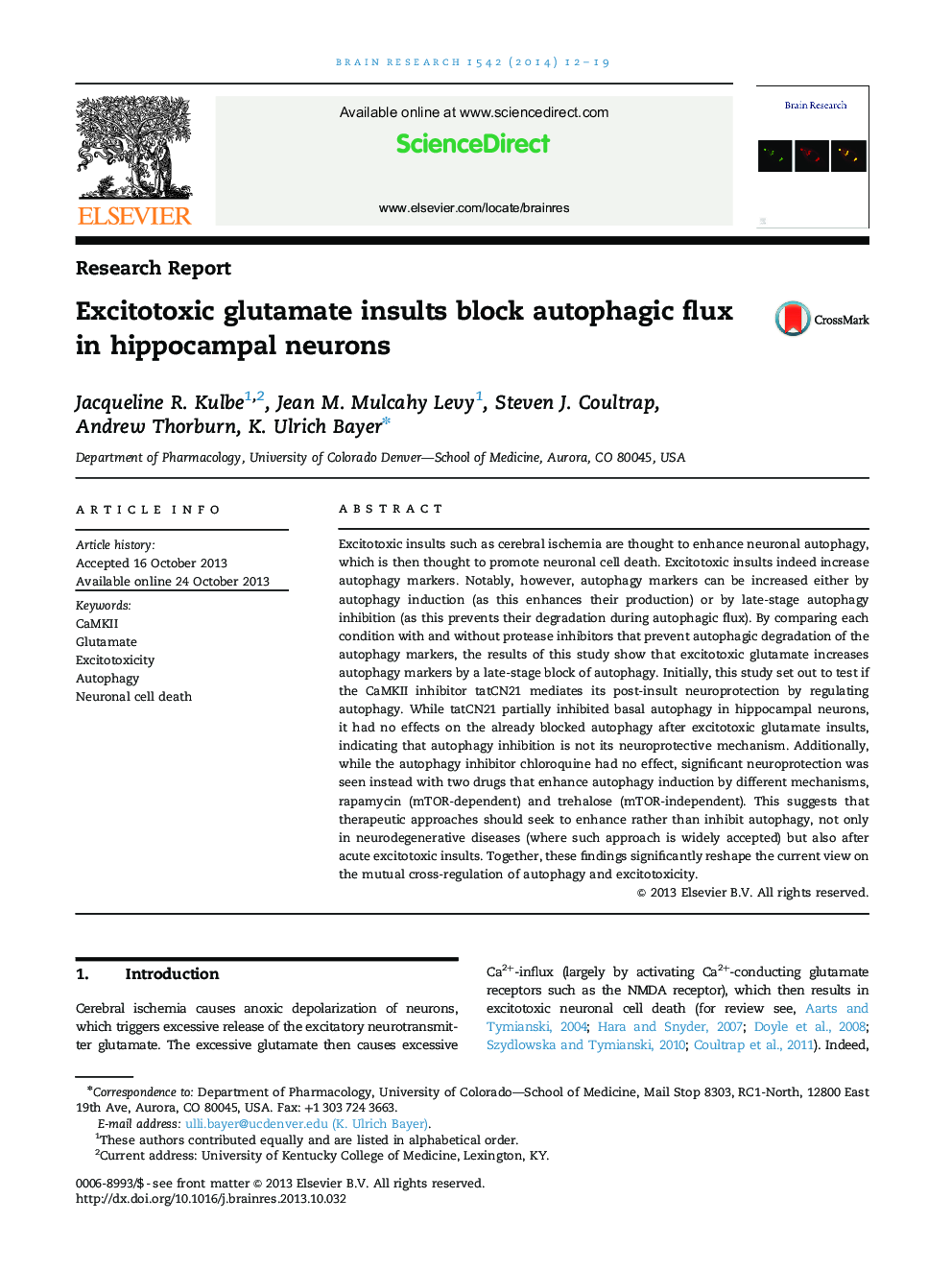| کد مقاله | کد نشریه | سال انتشار | مقاله انگلیسی | نسخه تمام متن |
|---|---|---|---|---|
| 6263476 | 1613897 | 2014 | 8 صفحه PDF | دانلود رایگان |

- Excitotoxic glutamate insults caused a late-stage block of autophagy in hippocampal neurons.
- Autophagy enhancers provided neuroprotection from excitotoxic insults.
- An autophagy inhibitor had no effect on excitotoxic neuronal cell death.
- CaMKII inhibition reduced autophagy basally, but not after excitotoxic insults.
Excitotoxic insults such as cerebral ischemia are thought to enhance neuronal autophagy, which is then thought to promote neuronal cell death. Excitotoxic insults indeed increase autophagy markers. Notably, however, autophagy markers can be increased either by autophagy induction (as this enhances their production) or by late-stage autophagy inhibition (as this prevents their degradation during autophagic flux). By comparing each condition with and without protease inhibitors that prevent autophagic degradation of the autophagy markers, the results of this study show that excitotoxic glutamate increases autophagy markers by a late-stage block of autophagy. Initially, this study set out to test if the CaMKII inhibitor tatCN21 mediates its post-insult neuroprotection by regulating autophagy. While tatCN21 partially inhibited basal autophagy in hippocampal neurons, it had no effects on the already blocked autophagy after excitotoxic glutamate insults, indicating that autophagy inhibition is not its neuroprotective mechanism. Additionally, while the autophagy inhibitor chloroquine had no effect, significant neuroprotection was seen instead with two drugs that enhance autophagy induction by different mechanisms, rapamycin (mTOR-dependent) and trehalose (mTOR-independent). This suggests that therapeutic approaches should seek to enhance rather than inhibit autophagy, not only in neurodegenerative diseases (where such approach is widely accepted) but also after acute excitotoxic insults. Together, these findings significantly reshape the current view on the mutual cross-regulation of autophagy and excitotoxicity.
Journal: Brain Research - Volume 1542, 13 January 2014, Pages 12-19